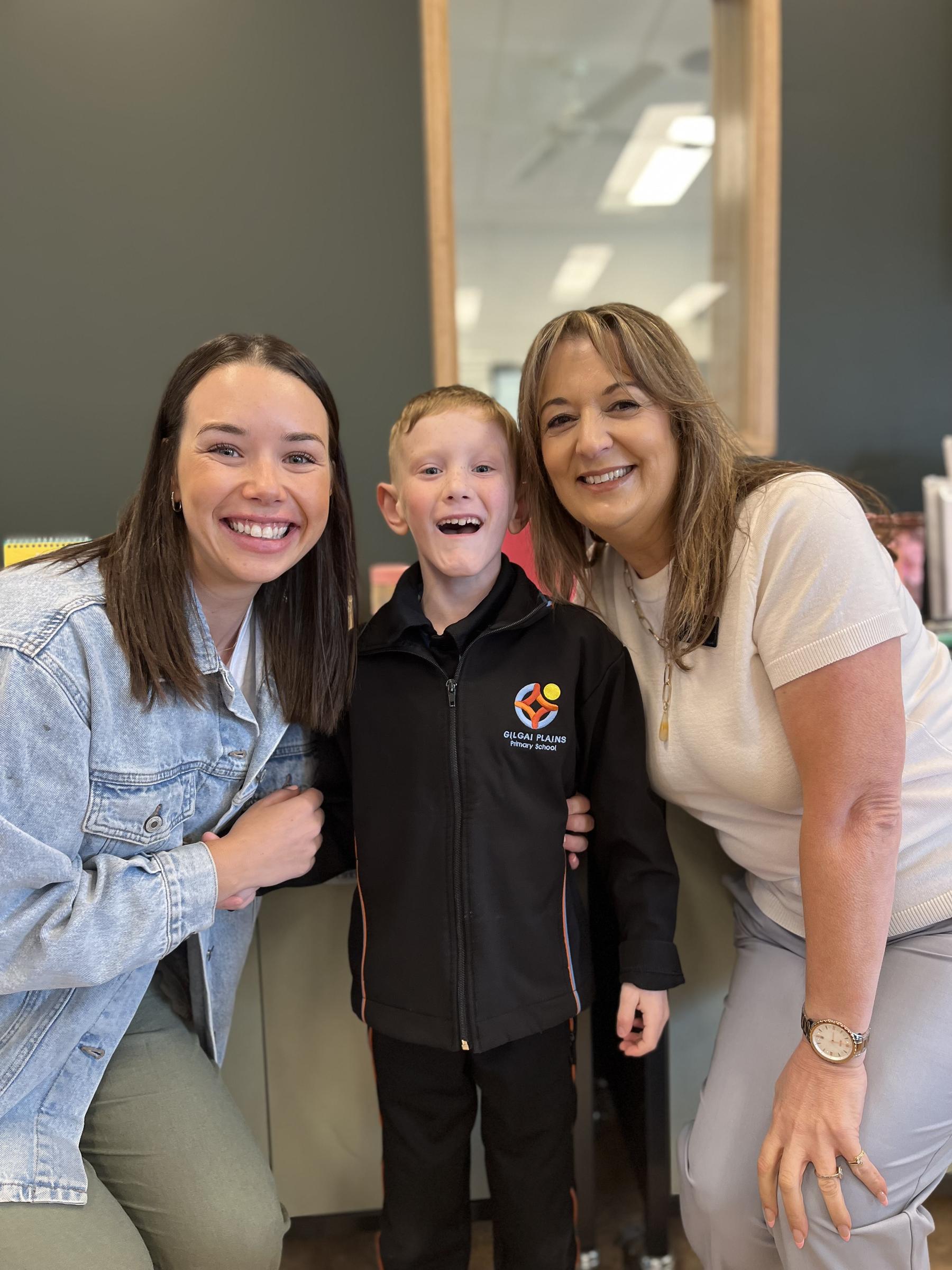From the Principal
Anthea Jamieson

From the Principal
Anthea Jamieson
Today is Harmony Day. A day where we celebrate our culturally rich and diverse community and society. Harmony Day promotes respect, inclusiveness and a sense of belonging for all living in Australia.
At Gilgai Plains we currently have a number of our families who are observing Ramadan. Some of our students are fasting as part of their religious beliefs. It is important for all of our students to have knowledge about Ramadan in order to support their friends in an inclusive way.
In today's interconnected world, it's more important than ever for our children to develop an understanding and appreciation of different cultures and religious traditions. As they grow, our children will interact with many people from diverse backgrounds, and by fostering a sense of cultural awareness early on, we can help create a more inclusive, empathetic, and respectful society. We are very proud of our students and the way they play and work by our school values, Respect, Kindness, Learning Together and Zest.
At Gilgai Plains Primary, we learn about, commemorate and celebrate many traditions and events. It is important to learn about our own and other cultures for the following reasons:
Promotes Tolerance and Respect - When children learn about different cultures and religious practices, they gain a deeper appreciation for diversity. They begin to see the beauty in traditions that may be different from their own, and they are less likely to harbor stereotypes or prejudices. Understanding the customs, values, and beliefs of others encourages mutual respect, which is fundamental to building peaceful, harmonious communities.
Builds Empathy and Emotional Intelligence- Learning about other cultures and religions encourages children to step into someone else's shoes. It helps them understand the experiences, struggles, and joys of others, fostering empathy. Children who are exposed to diverse cultures are more likely to develop a compassionate perspective toward others, regardless of their background or beliefs. This emotional intelligence can serve them well in personal relationships and throughout their lives.
Enhances Global Citizenship - As our world becomes increasingly interconnected, it's crucial that children grow up understanding that they are global citizens, not just members of their immediate communities or countries. Learning about different cultures and religious events helps them recognize their place in the broader world and the importance of contributing to a peaceful, inclusive global society. They learn that, despite differences, everyone shares common values such as kindness, justice, and the desire for a better future.
Fosters Curiosity and Critical Thinking - Exposure to different cultural practices and religious events sparks curiosity in children. It encourages them to ask questions, explore new ideas, and develop a broader worldview. Children who are taught about the rich diversity of our world are more likely to grow into open minded individuals who seek out knowledge and appreciate the complexity of human experiences. Additionally, learning about the similarities and differences between cultures can sharpen critical thinking skills as children learn to evaluate information and form their own perspectives.
Celebrates Diversity - Religious holidays and cultural events offer children a chance to learn about unique traditions that may not be part of their everyday lives. Whether it's Diwali, Hanukkah, Ramadan, Christmas, Easter or Lunar New Year, each celebration carries its own significance and teaches valuable lessons about faith, family, community, and history. By celebrating and participating in these events, children not only learn about the world around them, but they also contribute to a culture of inclusion and acceptance.
At Gilgai Plains, our motto is “We spark joy in learning and compassion in hearts.” Part of our Vision Statement is that our students will “go on to make the world a better place.”
Teaching our students about other cultures and religious events equips them with the tools to navigate and thrive as they grow in a diverse world. By fostering empathy, respect, and curiosity, we help them become compassionate and open minded individuals who are ready to contribute to a more peaceful and inclusive society. By building our student’s understanding it will not only benefit them in their own life, but also the world they will shape in the future.
We hope you will join us on the last day of term, for our Easter bonnet parade, a tradition that is upheld in many Australian schools. Women would often wear elaborate hats or bonnets adorned with flowers, ribbons, feathers, and other decorative elements to attend Easter Sunday church services and parades. These bonnets symbolized renewal, and new beginnings.
We are looking forward to seeing our students wearing their amazing creative Easter hats or even some simple bunny ears! It’s a fun way to end our busy term.
Kind regards,